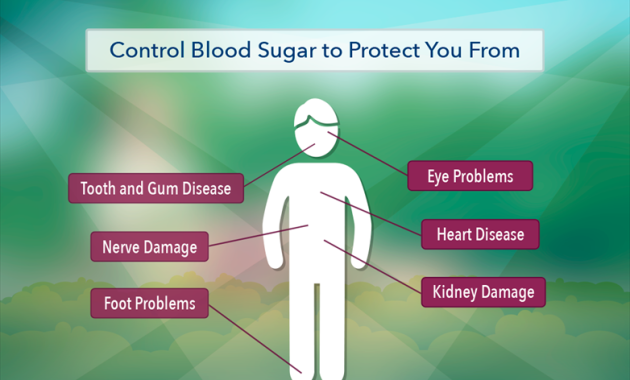
How to Stop Diabetes From Ruining Your Daily Productivity: A Practical Guide
Diabetes, a chronic metabolic disorder, affects millions worldwide. It can significantly impact daily life. Many people with diabetes find their productivity suffers. This article provides actionable strategies. These strategies help manage diabetes and boost productivity. We will explore the challenges. We will also discuss proven solutions. These solutions can help you regain control of your day.
Understanding the Impact of Diabetes on Productivity
Diabetes isn’t just a physical condition. It also affects mental and emotional well-being. Fluctuations in blood sugar levels can lead to several issues. These issues include fatigue, difficulty concentrating, and irritability. These symptoms can severely hinder productivity. They make it hard to focus on tasks. They also make it difficult to meet deadlines. Uncontrolled diabetes can also lead to complications. These complications include nerve damage and vision problems. These can further decrease productivity. Understanding these impacts is the first step. This understanding helps in developing effective management strategies.
The Physical Symptoms and Their Consequences
High or low blood sugar levels trigger physical symptoms. These symptoms directly affect productivity. Hyperglycemia (high blood sugar) causes fatigue. It also causes increased thirst and frequent urination. This can disrupt work or daily routines. Hypoglycemia (low blood sugar) causes shakiness. It also causes confusion and even loss of consciousness. These symptoms can be dangerous. They also can lead to missed workdays. Diabetes management aims to minimize these fluctuations. This will lead to improved physical well-being. It will also lead to better productivity.
The Mental and Emotional Toll
Diabetes also brings emotional and mental challenges. The constant need for monitoring blood sugar is stressful. The fear of complications can cause anxiety. Depression is also common among people with diabetes. These emotional burdens can drain energy and focus. They make it difficult to be productive. Addressing these emotional aspects is crucial. This is as important as managing physical symptoms. Seeking support and practicing self-care are vital. These can help maintain mental well-being and productivity.
Strategies to Manage Diabetes and Boost Productivity
Effective diabetes management is key. This is the foundation for increased productivity. Several strategies can make a significant difference. These strategies involve lifestyle changes and proactive healthcare. They also involve the use of technology.
Optimizing Diet and Nutrition
Diet plays a critical role in diabetes management. A balanced diet helps control blood sugar levels. It also provides sustained energy. Focus on consuming whole foods. These include fruits, vegetables, and lean proteins. Limit processed foods, sugary drinks, and excessive carbohydrates. Regular meal timing is also important. This helps prevent blood sugar fluctuations. Consulting a registered dietitian is beneficial. They can create a personalized meal plan. This plan meets your specific needs and goals. They can guide you on how to stop diabetes from ruining your daily productivity.
Regular Exercise and Physical Activity
Physical activity improves insulin sensitivity. It also helps regulate blood sugar levels. Aim for at least 150 minutes of moderate-intensity exercise per week. This can include brisk walking, swimming, or cycling. Incorporate strength training exercises. These exercises help build muscle mass. Muscle mass helps improve glucose metabolism. Exercise also boosts energy levels. This helps combat fatigue. It also improves mood and overall well-being. Consistency is key. Find activities you enjoy. This will make it easier to stick to your exercise routine.
Medication and Monitoring
Following your prescribed medication regimen is crucial. Take medications as directed by your doctor. Monitor your blood sugar levels regularly. Use a glucose meter or continuous glucose monitor (CGM). Keep a log of your readings. Share this information with your healthcare provider. This information helps in adjusting your treatment plan. This ensures optimal blood sugar control. Understanding how your medication works is also important. Know the potential side effects. Know how to manage them effectively. This helps improve your productivity.
Stress Management and Mental Health
Chronic stress can worsen diabetes. It can also negatively impact productivity. Implement stress management techniques. These techniques include meditation, deep breathing, and yoga. Engage in activities you enjoy. These can help reduce stress levels. Prioritize adequate sleep. Aim for seven to eight hours of sleep per night. This is essential for both physical and mental health. Consider seeking professional support. This is for managing stress and addressing mental health concerns. This can significantly improve your productivity.
Leveraging Technology and Tools
Technology offers several tools to aid diabetes management. Use a smartphone app to track blood sugar levels. Use it to monitor food intake. Use it to analyze exercise patterns. Consider using a continuous glucose monitor (CGM). A CGM provides real-time glucose data. It also alerts you to potential issues. Insulin pumps can help with precise insulin delivery. These tools can simplify diabetes management. They can also improve blood sugar control. This can help you stop diabetes from ruining your daily productivity.
Creating a Productive Daily Routine with Diabetes
A well-structured daily routine is beneficial for people with diabetes. This routine helps maintain blood sugar levels. It also promotes consistent energy levels. Here are some tips for creating a productive daily routine.
Planning Your Day
Start by planning your day. Schedule your meals and medication times. Plan for exercise and blood sugar monitoring. Prioritize your tasks and set realistic goals. This helps you stay organized. It minimizes stress and increases productivity. Consider using a planner or digital calendar. This will help you manage your schedule effectively.
Meal Planning and Preparation
Plan your meals in advance. This helps ensure you make healthy choices. Prepare meals and snacks ahead of time. This saves time and reduces the temptation to eat unhealthy foods. Carry healthy snacks with you. These snacks can prevent low blood sugar. Consider using a meal delivery service. This is a great way to ensure you have balanced meals.
Incorporating Breaks and Rest
Take regular breaks throughout the day. These breaks prevent fatigue and maintain focus. Take short breaks to check your blood sugar. Also, take breaks to eat a snack. Incorporate short walks or stretching exercises. This helps improve circulation and energy levels. Ensure you get adequate rest. Aim for a consistent sleep schedule. This will help optimize your productivity.
Adapting Your Workplace
Communicate with your employer about your diabetes. Request accommodations if needed. These may include flexible work hours. Also, include the option to take breaks. Ensure you have access to a place to store your medication. Keep healthy snacks at your desk. These steps will help you manage your diabetes effectively. They will also help you maintain your productivity at work.
Seeking Support and Staying Motivated
Managing diabetes is a team effort. It involves healthcare professionals. It also involves family and friends. Seeking support and staying motivated is essential for long-term success. Here’s how to do it:
Building a Support Network
Connect with other people with diabetes. Join a support group or online forum. Share your experiences and challenges. Learn from others’ experiences. Seek support from family and friends. Educate them about your condition. Encourage them to provide support. This can help you stay motivated and manage your diabetes effectively.
Working with Healthcare Professionals
Regularly visit your healthcare provider. This includes your doctor, endocrinologist, and diabetes educator. Discuss your progress, concerns, and any challenges. Make sure your treatment plan is optimized. Healthcare professionals can provide valuable guidance. They can also provide support to help you manage your diabetes. They can help you stop diabetes from ruining your daily productivity.
Staying Positive and Motivated
Focus on your successes. Celebrate your achievements. Set realistic goals. Break down larger goals into smaller, manageable steps. Reward yourself for reaching milestones. Practice self-compassion. Don’t be too hard on yourself. Learn from any setbacks. Remember that managing diabetes is a journey. It takes time and effort. Staying positive and motivated is key to long-term success.
Conclusion: Taking Control of Your Productivity with Diabetes
Diabetes does not have to dictate your productivity. By implementing the strategies discussed, you can effectively manage your condition. You can also regain control of your daily life. Focus on a healthy diet and regular exercise. Prioritize medication adherence. Manage stress and seek support. Use technology to your advantage. These steps can significantly impact your productivity. Remember, managing diabetes is an ongoing process. It requires commitment and consistency. With the right approach, you can thrive. You can achieve your personal and professional goals. You can stop diabetes from ruining your daily productivity.
[See also: Related Article Titles]

